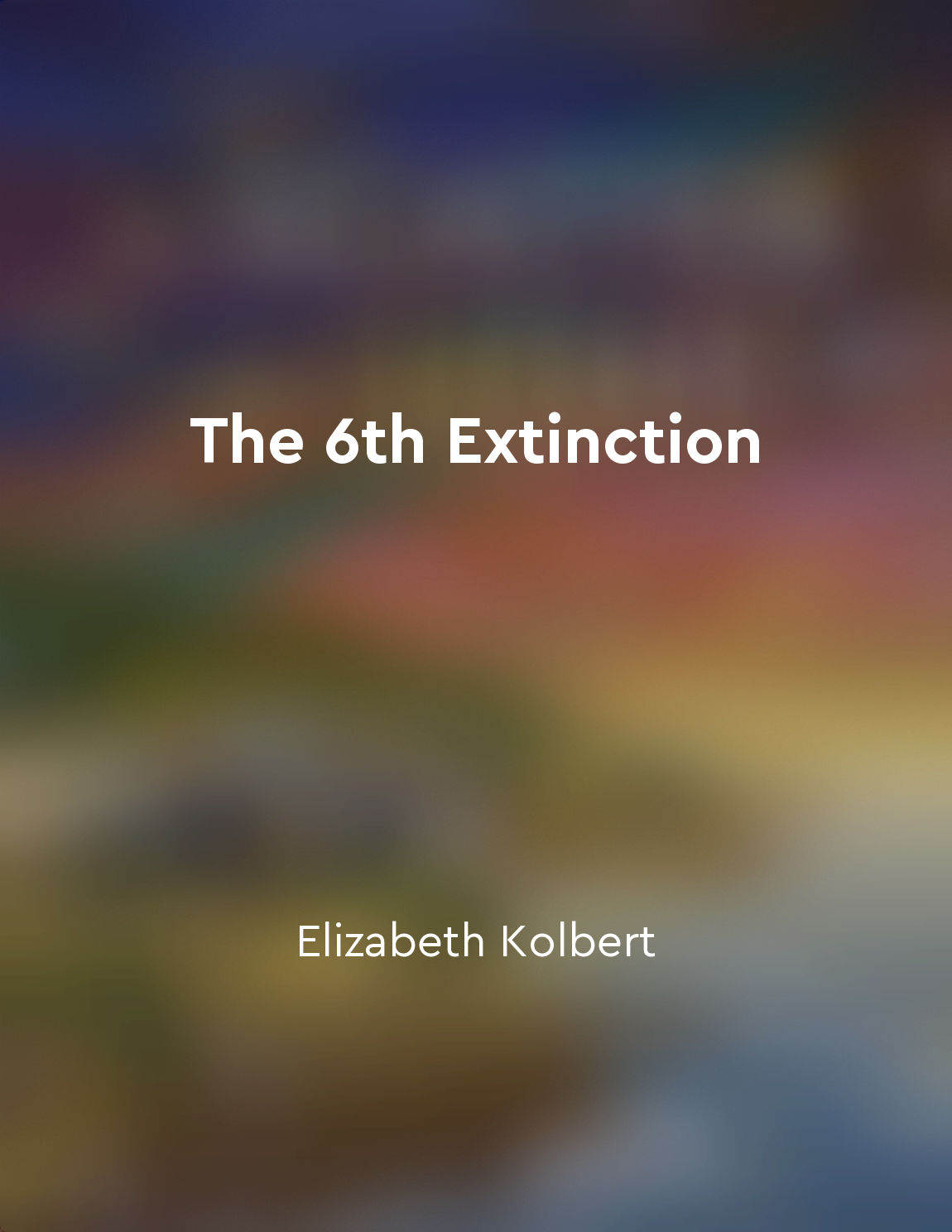Audio available in app
Biodiversity is decreasing rapidly on Earth from "summary" of The 6th Extinction by Elizabeth Kolbert
The world is losing species at an alarming rate, a phenomenon that scientists refer to as the "sixth extinction." The rate of extinction today is estimated to be 1,000 times higher than the natural background rate. This rapid loss of biodiversity is driven by various factors, including habitat destruction, climate change, pollution, and overexploitation. The consequences of this decline in biodiversity are far-reaching and profound. As species disappear, ecosystems become less resilient and more vulnerable to disturbances. This loss of biodiversity can have cascading effects, leading to the collapse of entire ecosystems. In addition, many species play crucial roles in ecosystem functioning, such as pollination, seed dispersal, and nutrient cycling. The disappearance of these species can disrupt these essential processes, leading to further ecological imbalances. Furthermore, the loss of biodiversity can have direct impacts on human societies. Many communities rely on biodiversity for food, medicine, and other resources. The decline of certain species can threaten the livelihoods and well-being of these communities. In addition, biodiversity loss can also impact global food security and public health. For example, the loss of pollinators, such as bees and butterflies, can reduce crop yields and lead to food shortages.- But much more needs to be done. Conservation efforts, such as protected areas and species reintroductions, are crucial for preserving species and habitats. In addition, addressing the root causes of biodiversity loss, such as habitat destruction and climate change, is essential for long-term conservation success. Ultimately, protecting biodiversity is not just about saving individual species, but about safeguarding the web of life that sustains us all.


